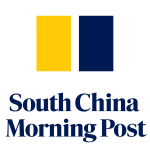China urged to diversify soybean sources to curb reliance on US
Jun Mai, South China Morning Post, May 22, 2020
(…)
Li’s proposal [that China should diversity soy imports from the US and Brazil] would also be difficult to implement because of China’s industrialisation and concentration of livestock production, according to Gustavo Oliveira, an assistant professor with the University of California, Irvine, who tracks global soybean production.
“The main difficulty faced by China is about the continued industrialisation and concentration of livestock production, which guarantees that demand for soy-based livestock feed outpaces China’s capacity for domestic production and procurement from countries besides Brazil and the US,” he said.
For the full report, see: https://www.scmp.com/news/china/diplomacy/article/3085579/china-urged-diversify-soybean-sources-curb-over-reliance-us





